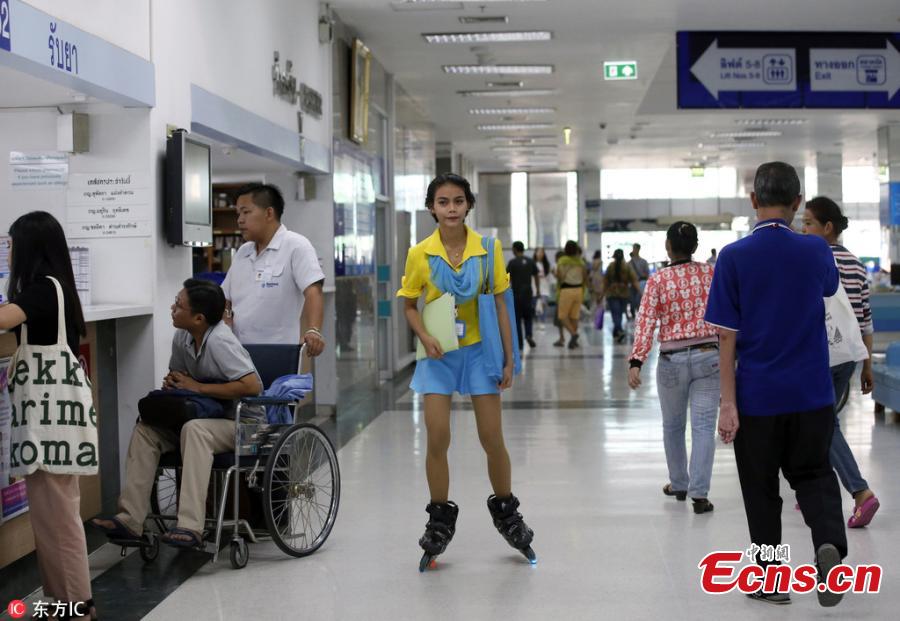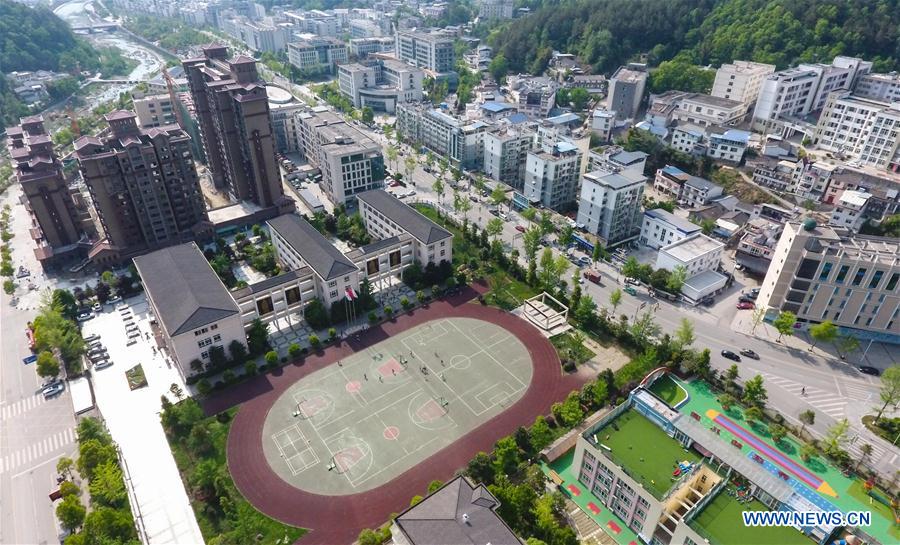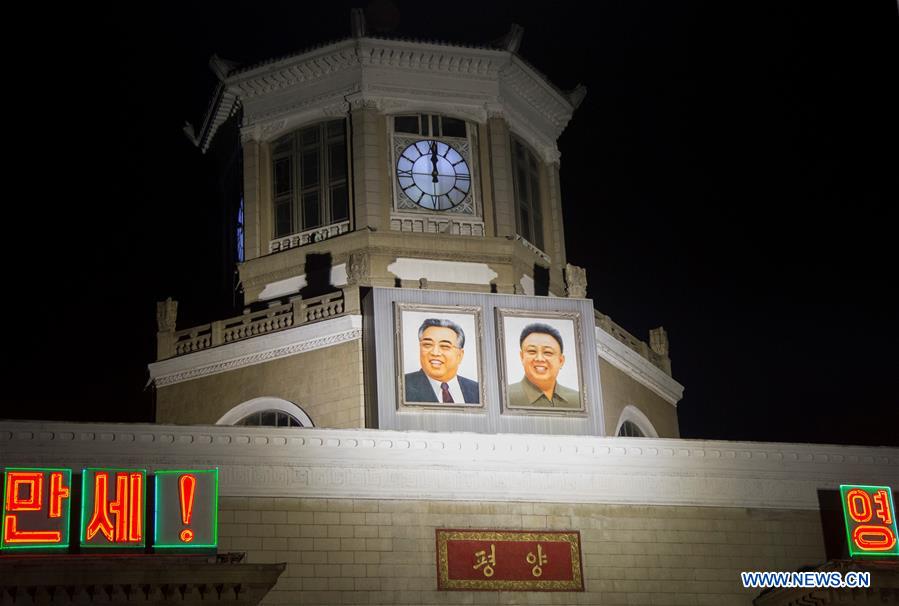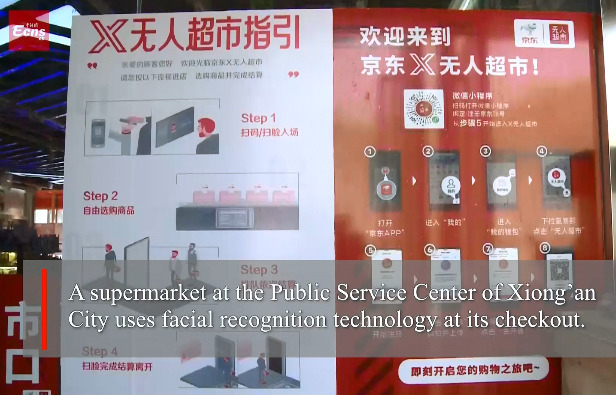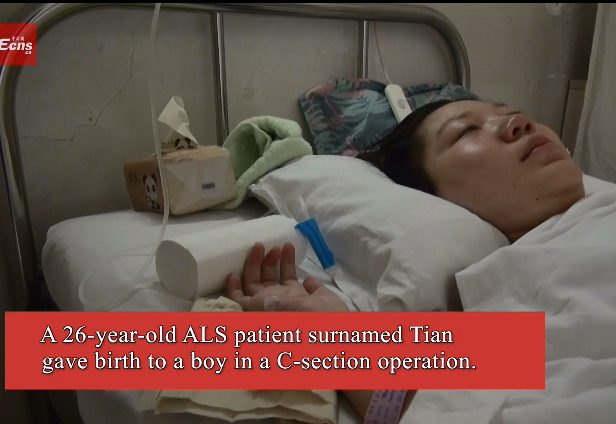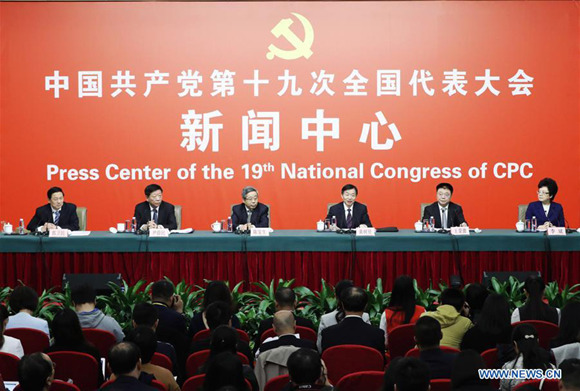
The press center of the 19th National Congress of the Communist Party of China (CPC) holds a press conference on securing and improving people's livelihood, in Beijing, capital of China, Oct. 22, 2017. (Xinhua/Shen Bohan)
China has made great progress in improving people's livelihood over the past five years, and more reforms will be carried out to meet people's new expectations.
The remarks came at a Sunday morning press conference at the 19th National Congress of the Communist Party of China (CPC), with leading officials briefing media on the improvement of Chinese people’s livelihood as well as the plans and measures to be taken in the future. [Special coverage]
Officials from the Ministry of Education, Ministry of Civil Affairs, Ministry of Human Resources and Social Security, Ministry of Housing and Urban-Rural Development, and the National Health and Family Planning Commission, attended the press conference.
Houses for living not speculation
"Houses are built to be inhabited, not for speculation," was a mantra that Wang Menghui, Minister of Housing and Urban-Rural Development kept repeating during the press conference.
Responding to a question about the cooling down trend in China's housing market, Wang said the regulatory policies of the central government since last October have had an effect on curbing speculative investment.
"The current housing market is healthy and stable," he said. "We will stick to the regulation policy and it is expected that the housing prices will remain stable in the fourth quarter of the year."
Meanwhile, Wang said that the living conditions of around 80 million people in need were upgraded in the past five years, adding that efforts were made to help over 60 million residents in run-down areas move into apartment buildings.
Employment situation stable, space for improvement remains
New urban employment opportunities averaged more than 13 million annually over the past five years, according to Yin Weimin, Minister of Human Resources and Social Security.
"It’s indeed not an easy task to make such achievements. A stable employment situation is also a basis for social and economic development," he added.
In the future, Yin said, the government will work to provide better employment opportunities for the people, including offering more professional training, encouraging self-employment and providing better employment service.
Making China the center of global education
Looking back on the last five years, Minister of Education Chen Baosheng said that in terms of financial resources, fiscal spending on education has reached 3.8 trillion yuan (574 billion U.S. dollars), representing four percent of GDP. Students in 90 percent of learning institutions now have broadband access.
On an international scale, 516 Confucius Institutes have been established overseas, providing facilities for students to learn Chinese Mandarin. China is now the world’s third-biggest country in terms of enrolling international students, and the biggest in Asia.
Responding to a question about his vision of China's education in 2049 -- the centenary of the founding of New China -- Chen said that he saw China’s education system standing at the center of the world, leading the tide of global education. He predicted that China’s education standards would equal global standards, with the country becoming the world’s number one destination for international students.
Social welfare & charity work steadily promoted
According to Huang Shuxian, Minister of Civil Affairs, the system providing basic living subsidy for disabled people in difficulties and nursing subsidy for people with severe disabilities has been fully established.
The scheme has benefited more than 10 million people with disabilities across the country, he added.
Answering a question about poverty alleviation efforts, Huang said the government has invested some 250 billion yuan (38 billion US dollars) in social relief in 2017, nearly 40 percent up from 2012.
Healthy China: Meeting new needs and aspirations
Li Bin, Minister of National Health and Family Planning Commission, said the approval and implementation of the Healthy China 2030 initiative was one of the key achievements of the past five years, along with fast progress made on overall improvements to the medicine and healthcare system.
Some 80 percent of China’s population now has access to clinical care within 15 minutes from where they live, with 82.5 percent of counties across the country capable of carrying out patient diagnoses.
Li also said that with the introduction of the two-child policy in November 2015, there has been an increase in related services while improvements have been made in childbirth and addressing infant mortality rates.
Read more: Minister: Challenge to include everybody into endowment insurance system
China's job market remains stable, says minister
Education Ministry to meet people's demands
Minister: Property market to remain stable in Q4









